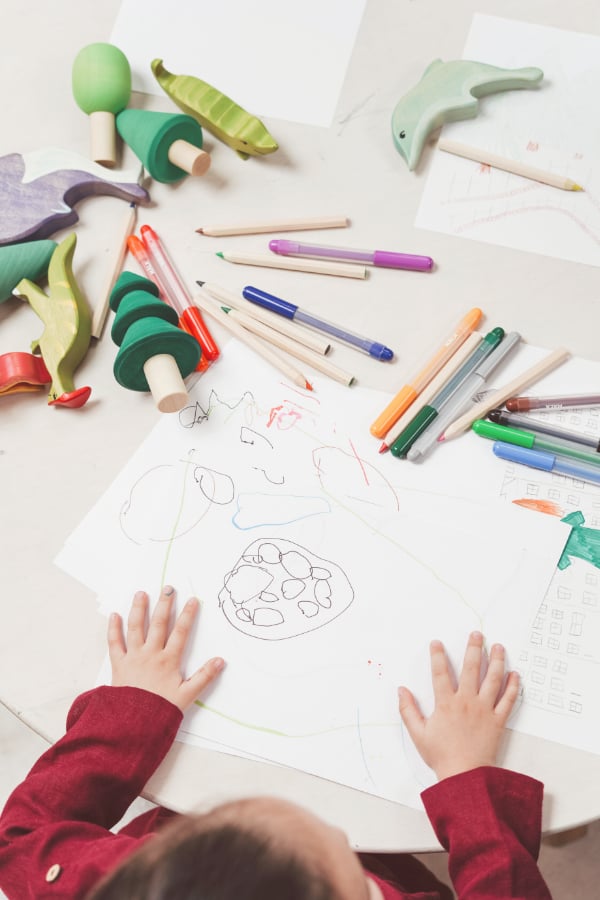Student Learning
Communicating Student Learning
Our school uses three different methods for reporting: Paper Portfolios, Digital Portfolios and Report Cards using MyEd. If you are unsure of the reporting method that your student’s class is using, please connect with your teacher.
Paper Portfolios – Classes using paper portfolios will send home a Summary of Learning at two points during the school year
Digital Portfolios – Classes using Digital Portfolios can access them from home at any time. If your student’s teacher is using Digital Portfolios for reporting, you will have been sent an email with access information. Summaries of Learning will be posted to the Digital Portfolios at two points during the school year.
Report Cards Using MyEd – Classes using MyEd will be sending home formal report cards three times a year.
If you have any questions about reporting, or about the progress of your student please contact your student’s teacher. Parent/Teacher/Student Conferences traditionally occur in November. However, we encourage parents to contact individual teachers to discuss their child’s progress at any time.
Inclusive Education
Puntledge is able to provide the following support services: Learning Support Teachers, Counsellor, Speech and Language Pathologist, Indigenous Support Worker, Educational Assistants and a Youth and Family Support worker.
Learning Support:
Students have a variety of strengths and stretches, and the Learning Support Teachers (LSTs) play a role in providing supports to those who require it. Learning Support Teachers provide direct instruction and resources to help students both in their Learning Centres and in the classroom. An LST can provide assessment of students and is available for consultation with teachers on an ongoing basis. The LSTs collaborate with classroom teachers to adapt the program to suit individual needs and may provide additional resource materials for teachers to use. The LST also works with members of the District Support Team to support transitions to Kindergarten and transitions to high school. The LSTs, in consultation with School Based Team and parents, might also make referrals for District services: Occupational Therapy, Physical Therapy, Assistive Technology, etc.
School Based Team (SBT)
The School-Based Team (SBT) is a collaborative problem-solving team that works with classroom teachers to develop educational programs for students who may or may not have special education designations. The SBT includes: the Learning Support Teacher, the Principal/Vice Principal, the Counsellor, the Speech and Language Pathologist and the classroom teacher. Other guests may include the School Psychologist and district specialists. The SBT works together to make decisions regarding case managers, referrals (e.g., Speech Language Pathologists, School Psychologists), resource allocation etc.)
Library Learning Commons
Our Library, or more recently known as our Library Learning Commons (LLC) uses a whole school approach to building a participatory learning community. The library learning commons is the physical and virtual collaborative learning hub of the school. In our Library Learning Commons, we work together to foster a love for literacy and encourage collaborative problem solving using an inquiry lens. Literacy initiatives include, weekly book exchanges, book displays, book talks, reading clubs, reading and writing challenges, writer’s workshop, author visits, book fairs and more. We incorporate inquiry through the use of technology, computational thinking and problem solving. Some technologies that we use in our LLC include robots (Ozobots, Dash and Dot, Sphero Bolt, Sphero Indi, Cubelets, Makey Makey, etc.), Coding (Scratch and code.org) makerspace with loose parts, digital breakout games, greenscreen, and iMovie as well as others. Our aim is to provide an array of strategies to incorporate inquiry-based student learning and inspire student literacy all while focusing on safe digital practices and digital citizenship.
Indigenous Education
Puntledge Park’s Indigenous Support Workers (ISWs) provide direct support to all self-identified Indigenous Students K-12. Their main role is to make connections with students and to provide the following:
- To increase every Indigenous student’s sense of belonging, cultural identity and self-esteem.
- To increase the academic success of all Indigenous students through personalized learning.
- To increase the awareness and understanding of First Nations, Metis, and Inuit history, traditions and culture for all students.
- To increase Indigenous students’ skills, qualities and confidence in leadership.


